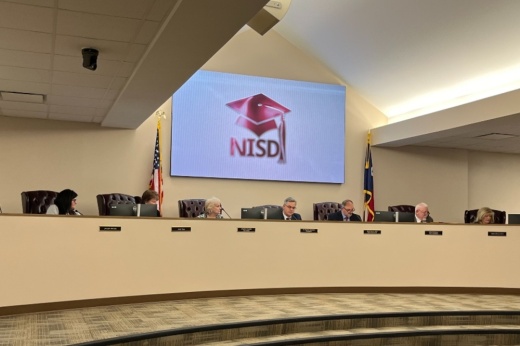The details
According to district documents, the seven resolutions the board adopted address the following items:
- Full funding for prekindergarten programs
- Public school funding
- Recapture
- Vouchers
- Accountability
- School safety
- Local control of instructional materials
With NISD trustees approving the resolutions, district officials can submit a formal proposal aligned to priorities that are part of TASB’s 2024-26 advocacy agenda.
According to district documents, when the state requires districts to move from half-day pre-K to full-day pre-K in 2026, additional facilities, programs and staffing costs will be incurred by each district. This resolution would change the funding from the state from half-day to full-day to align with that universal change.
In terms of public school funding, district documents state TASB advocates for a formula-driven increase to the basic allotment every two years based on the rate of inflation. The basic allotment is $6,160 per student and has not increased since 2019.
Recapture began as a way to help equalize public education funding in Texas by removing local property tax dollars from wealthy school districts to boost funding for lower-income school districts, according to district documents. However, it has since morphed into a vehicle for the state to help balance the general fund. District documents state that by supporting TASB’s recommendation, NISD advocates for a separate, dedicated, transparent fund used only to support public school districts.
In terms of vouchers, the trustees are on board with TASB’s stance to oppose private-school vouchers. District documents state private schools are not required to meet the same academic standards and do not report test results, graduation rates and other performance measures, nor is there any public financial or academic accountability for public tax dollars.
TASB advocates that the State of Texas Assessments of Academic Readiness should not be the only tool used, as it is a single testing measure that does not effectively determine the following:
- The extent of knowledge gained
- Students’ varied learning styles and differences
The passage of House Bill 3 mandated at least one armed security officer—specifically, a commissioned peace officer—be present during regular school hours at each campus. In addition, the bill requires new structural safety requirements, including:
- Perimeter fencing
- Impact-resistant glass
- Panic alert system
Finally, district documents state TASB advocates for expansion of materials that are approved at the local level and receive funding at the state level to best meet the needs of students and staff, which the board supported with their approval of this resolution.
Quote of note
Board President Steve Sprowls took the opportunity to thank staff for including the part about recapture, which sends taxpayer money in financially wealthy districts such as NISD to the state’s general fund, rather than to fund public school districts.
“If a resident is paying tax money for ISDs, it should stay in ISDs,” Sprowls said.





